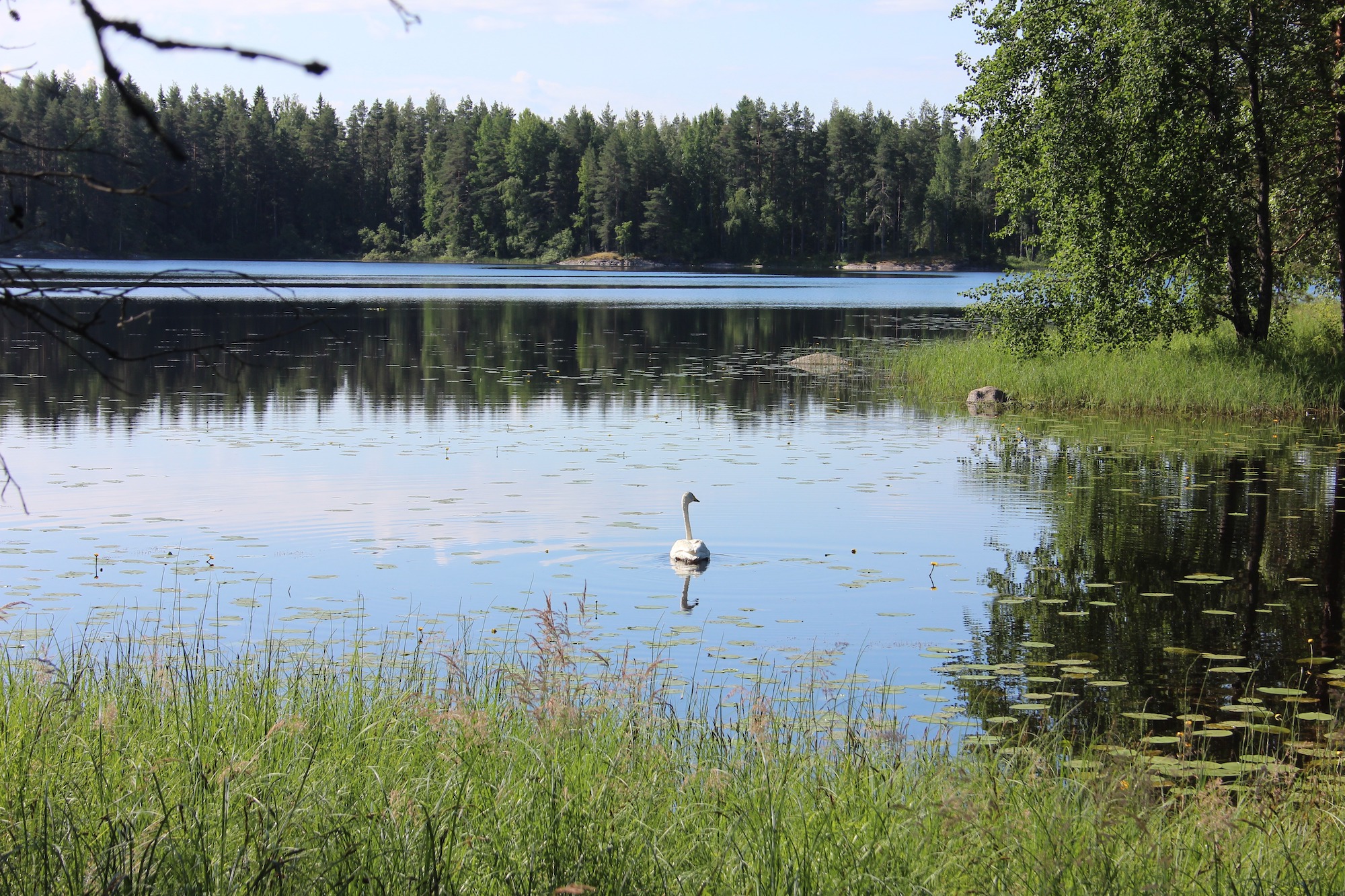Finland, or this dream called life
Also, Swedes vs Finns
Living the dream is an expression that means living a luxurious, ideal lifestyle, but it can also be taken to mean being out of touch with reality. Stop dreaming, bitch. Life is hard. Wake up and smell the coffee.
My time in Finland is almost up, and it was a dream in many ways. It was mostly a happy, relaxing, beautiful period, with just a few sad moments, but being in an arts residency also meant being away from the daily grind in a sort of alternate vacation time, which was really unsustainable for a much longer period. So it’s time to go.
And yet…
Some experiences, like some dreams, are easily forgettable, while others are memorable and remain with you for a long time. The ancient Greeks had two gates from which dreams came. The false or meaningless dreams came from the ivory gate; the true or prophetic dreams came from the horn gate. I suppose Finland, for me, was of the second type. While the dream is ending, some part of the experience will remain, and perhaps even become the basis for a new foundation in life.
Dreams can be captivating, but hard to explain, to ourselves and to others. While a dream can be exciting as it happens, it fades away as soon as you wake up, and you struggle to even remember it. There is something incommunicable about dreams. Hearing other people tell their dreams is usually boring. I suppose that’s why my Finland columns were not so exciting for readers — it’s hard to talk about a dream.
But one thing I find interesting is that Finland lies at the very edge of the West. Just next door to Russia, the West’s old-new nemesis, and, on the other side, to Sweden, the poster-child of current Western progressive values. Finland has only been independent since 1917, belonging to the Russian Empire for over a century before, and to Sweden for several hundreds of years before that.
While relations with Russia are historically complicated, especially now, they have not always been completely hostile, and there are many Russians living in Finland. Sweden and Finland, however, tend to get along better.
And yet… Historically, Sweden dominated Finland, but it was not exactly an equal relation. As someone local told me, during the period of Swedish domination, Swedes were the elite, and Finns were peasants: “Finns were basically used as workers and soldiers”. Still today, Swedish-speaking areas in Finland, closer to Sweden, are more upper-class, dominated by a few rich, traditional families. While the eastern area next to Russia (Karelia) was poorer and traditionally less developed, and still is. Peasants then as now.
Perhaps because of that, despite their major similarities, Finland and Sweden are, in some ways, very different. Or perhaps I should say that, while the landscape and many aspect of the culture in both countries are similar, Finns and Swedes are not.
Swedes today are very much into political correctness and virtue-signalling. Swedes tend to dislike conflicts, so they always try to find some sort of general consensus. But that, on the other hand, leads to conformism and to a certain sheep-like mentality. Everyone must support the same thing in order to avoid conflict, and for that they take their cues from the media. So they tend to like to support whatever is the fad of the day. In the 1930s, they supported eugenics because that was the vogue; now they support immigration and BLM.
It is interesting that such characteristics do not change even when you displace Swedes from Sweden. Minnesota is an American state famous for its large presence of Swedish immigrants. It is also one of the states more famous for pushing Somali immigration and BLM stuff. You might remember that the state was shook up by the George Floyd riots in 2020. But nothing much changed. If anything, it just made them even more supportive of BLM and other progressive stuff.
Finns are different. I don’t know if it is because of their proximity to Russia or for other reasons, but they seem less preachy and less consensus-oriented than the Swedes. They do not seem to care all that much about political correctness and seem to be more independent in their ways of thinking. Of course, they are still part of the current West and as such subject to the same type of propaganda and values and ideals. But it seems to be less pronounced than in Sweden.
One thing about the Scandinavian countries is that in the last decades they have become very Americanized. The same is true of the whole world, I suppose — American culture is global culture now, from the Halls of Montezuma to the shores of Tripoli — but since Scandinavians tend to be very fluent in English (more than Germans, and much more than Southern Europeans) the influence is felt more directly.
Personally, I don’t really like that a lot. I wish each country just kept more of their own culture and traditions. Finns have much to be proud of, and it’s not just Nokia, sauna and Moomins. I’ve learned a lot about Finland during this period, and I wish I could have learned even more.
Unfortunately, the experience is ending and now it’s time to leave for other shores. Thank you and goodbye, Finland. Kiitos and moi moi.




Hi, I enjoyed your Finland stories, but I am usually reading them in my email, so I don’t always comment. Dreams have always fascinated me as well. I’ve had a few characters and stories inspired by dreams.
I think also speaking about a dream aloud, while bland to the teller and listener, it cements it more so tin the teller’s memory , because the words give the dream more reality, then if it just existed in the mind.
Thank you! I think dreams are interesting but putting them into words is hard. They have their own inner logics that works when we are dreaming, but it doesn’t always make sense when you try to explain them.